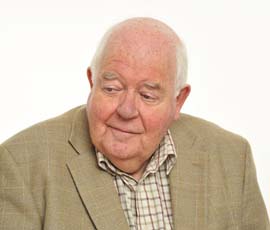Opportunities online for the uninformed

It’s 20 years since a scientist at the Cern Laboratory in Switzerland developed the worldwide web from the html internet system previously used by scientists for sharing data.
Today, one-third of the inhabitants of the world use it and that number is growing daily. It’s the fastest technological phenomenon ever known and some believe it will soon replace newspapers, magazines and books.
A year ago I heard the UK boss of Google claim that web-based social media was sweeping the world with 500 million people posting messages on Facebook with Twitter catching up fast. Those numbers are now out of date given the exponential expansion and writers and some readers of Farmers Weekly have been carried along on the tide.
Even I have been persuaded to blog occasionally. But I’ve resisted all temptations to join the Facebook community or to Tweet. I have no compulsion to tell the world each time I blow my nose, when I plan to leave home, or whatever. And if I did I would remind myself, based on the experiences of others, that villains can read and take advantage to help themselves to my property.
On a more serious front I worry, now that it’s gone beyond silly messages to more serious stuff, about the undoubted influence of social media. As Isabel Davies pointed out in her recent leading article (Leader, 5 August) newspapers and politicians take tweeters seriously and a campaigning industry has emerged around it.
38 Degrees, for instance, so named because that is the angle at which avalanches start, is a campaigning organisation that encourages tweeters to express their ideas on popular causes to “start avalanches of public opinion”. The vast majority of those people, by definition, understand little about the issue on which they declaim but are carried along by popular sentiment.
The initiators of such organisations would, I presume, say this is democracy at work and allows the voices of ordinary people to be heard. But when the self-selected social media-addicted hoard are taken so seriously by politicians that they are prepared to change important policies on the basis of single sentence judgements I think we are entering dangerous territory.
38 Degrees claims to have reversed Defra’s plan to sell off the Forestry Commission, for instance, by persuading thousands to tweet that they didn’t want it to happen. Perhaps you agree that they were right and Defra was wrong. I hold no brief for the Forestry Commission, or Defra, but I question if it can be right that a self-appointed bunch, most of whom have probably never visited a forest in their lives, manipulated by a campaigning organisation whose bona fides are unknown, should be able to exercise such power?
The same organisation claims, by attacking News International over phone-hacking and persuading advertisers to pull out of the News of the World, that its tweeters forced the paper to close. Few would argue with that result. But should a non-elected mob be able to achieve it? And it was a mob of a different kind that orchestrated the recent riots in London and elsewhere by communicating on their Blackberries.
Closer to home, as Isabel Davies suggested, tweeters are trying to stop the badger cull. Her message was “if you can’t beat them, join them”. She’s probably right. The communications revolution of which it’s a part is unstoppable and the NFU is asking its members to tweet to reject the campaign.
I wish them luck. But social media can be anti-social and I worry where it’s heading.
David Richardson farms about 400ha (1,000 acres) of arable land near Norwich in Norfolk in partnership with his wife, Lorna. His son, Rob, is farm manager.
Read more from all our Opinion writers
